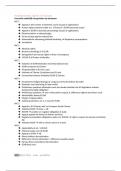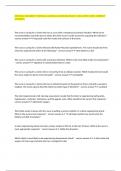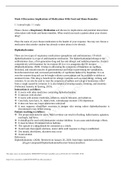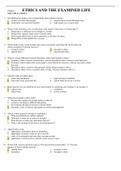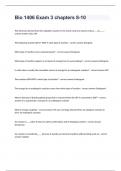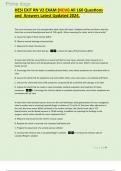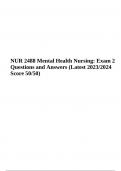Samenvatting
Samenvatting Fundamental rights in Europe STAPPENPLANNEN ELKE WEEK - 2022/2023 (in 1 KEER gehaald!)
Dit document bevat ALLES wat je nodig hebt voor het tentamen, namelijk alle stappenplannen gebaseerd op de werkgroep uitwerkingen. Het zijn extra uitgebreide aantekeningen met voorbeelden voor wat je op het tentamen kunt uitwerken! (zelfs inclusief beginpagina met korte verwijzingen om het onderwer...
[Meer zien]
